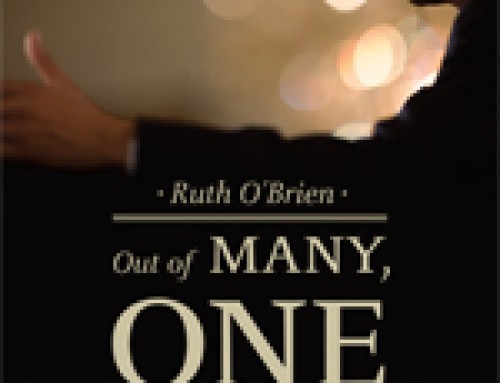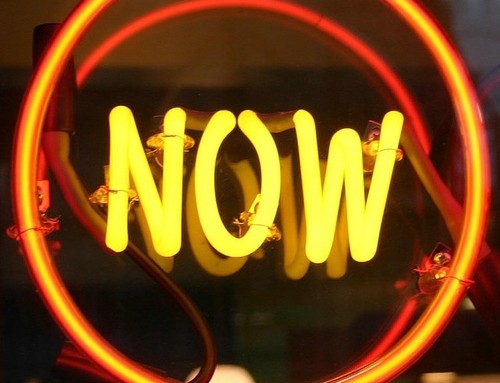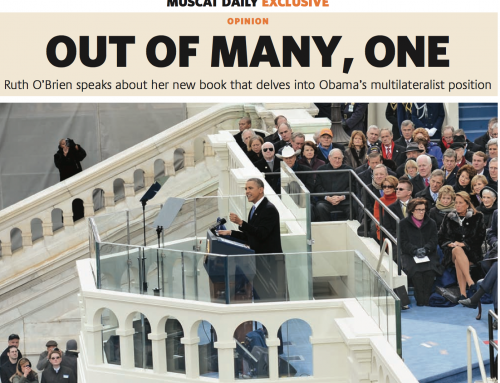 Hindsight is 20–20. One cannot create a better past. How is it news that liberals supposedly have always been on the side of “effective” regulation, whereas Obama was not? New spin, in a sanitary cycle, for sure; but early books on Obama took this line already, and I was not alone.
Hindsight is 20–20. One cannot create a better past. How is it news that liberals supposedly have always been on the side of “effective” regulation, whereas Obama was not? New spin, in a sanitary cycle, for sure; but early books on Obama took this line already, and I was not alone.
Of course, Obama decided not to reregulate what Bill Clinton unregulated — Wall Street. Of course, Obama’s choice in his economic team has been mainstream, as he leaned toward Rubinesque pro–Wall Street economic reform from the beginning, with the one caveat of his being for consumer reform, Teddy Roosevelt style. (Teddy Roosevelt’s so-called “economic” reforms that slightly “humanized” capitalism through middle-class consumer reform are notoriously weak.) We all knew this the week after Obama’s first election. When he appointed his economic troika –though it included Rahm Emanuel — who could have considered him a liberal? Please.
What is surprising about Larry Summers’ withdrawal is that Obama listened — not that the liberals are gaining more strength or putting up more opposition for regulation.
Obama’s worldview has been consistent. He was never a liberal, so why all the fuss? Is this posturing for 2016? Is Hillary more likely to reinstate Glass-Steagall and undermine Bill’s legacy? I doubt it.
Do liberals have their own power to do this even if Janet Yellen is appointed? I doubt it.
The time for the liberals to stand behind their never-into-financial-regulation president was when “the Bureau” was created (referred to now as CFPB or Consumer Financial Protection Bureau, having lost their attempt to liken it to J. Edgar Hoover’s “bureau.”) And now the Bureau could have some modicum of power before Obama leaves office.
Let’s stop sanitizing: Against liberal opposition, Obama passed over Elizabeth Warren (now Senator Warren) and appointed her right-hand man, Richard Cordray, to head the CFPB. Obama showed his support by turning the appointment into a demonstration of how he stood for consumers, or white, middle-class, suburban moms like Warren, who work hard at balancing their checkbooks in these austere times, not for regulation. But he supports consumer reform of big banks, to be sure. The GOP has tried to tie this regulatory agency up in the judiciary, and has succeeded.
Poised to “pick its battles,” the Bureau is vulnerable to both GOP and liberals — then and now: Conservatives opposing its pro-growth agenda, and liberal economists such as Robert Reich, Paul Krugman, and Joseph Stiglitz insisting that Obama supports the pro–Wall Street–speculation economic policies of Robert Rubin, Lawrence Summers, and Timothy Geithner, which do not achieve growth.
How then can the Bureau protect the public, as Warren, Cordray, and Obama promised with their pledge to provide all-encompassing middle-class consumer relief?
Only the GOP seems to get that the Bureau could have power. What gave the CFPB power is the federal regulatory process, which, with its notice-and-comment period, opens the enforcement process up to public-interest groups and consumer-advocacy groups, along with competing business groups.
This is not to say that Obama supports middle-class consumerism at the business community’s expense, particularly Wall Street. No, it’s not that simple.
Instead, Obama supports negotiated rulemaking that involves nudges, balancing consumer interests with those of business (and this includes the “big” banks considered too big to fail). What the liberals are missing is that the Obama administration opens the regulatory process to individual citizens more than ever before — and this includes advocacy for rules that harm the “too big to fail” banks. The deliberative-democratic, never liberal Obama administration has created a new bottom-up role for individual activists and consumer advocates and for those who reside in the communities most affected by regulations.
Obama has never been a pro-regulation liberal. Unlike the Great Society, Obama’s reforms emphasize settlements over lawsuits, and unlike the New Deal, they stress the adoption of voluntary measures over increasing quasi-judicial scrutiny.
The Consumer Protection Act required nearly 400 regulations to be issued. These could become a tool against the big banks if liberals could stop posturing and the lame-duck Obama administration could show a little unity, even if these regulations fall way short Glass-Steagall regulations that the liberal Democrat (Clinton I) undid.






